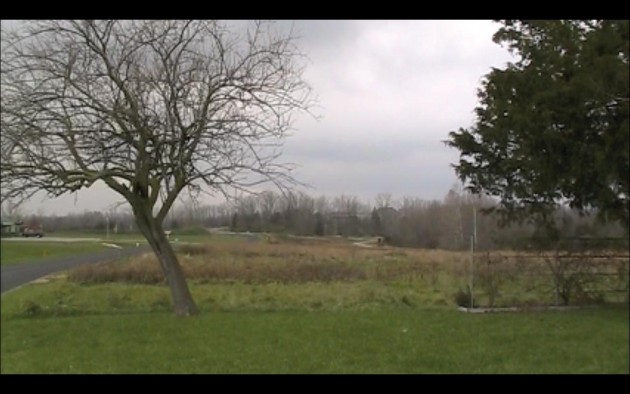
After three years of talk circulating about a possible campus farm at DePauw, students will finally break ground for the new farm in late Feb. 2013.
With student contributions, the Sustainability Club will grow produce and vegetables that will be used in the DePauw dining halls. The goal for the farm is to get students in touch with nature and for the university to become more organic in what they serve to students.
Last spring, students' interest for the farm sparked and two DePauw trustees donated around $20,000 at the beginning of the calendar year.
With funding and student interest, the only obstacle was determining how to monitor the farm in the summer months when students were off-campus.
Carol Steele, director of sustainability, said a solution has been found.
"We have an unusual business model in that the people who will keep the farm going in the summer are currently Sodexo [the dining services used by DePauw] employees," Steele said. "This was one big breakthrough we had in how we were going to do this."
Steve Santo, director of Dining Hall Services at DePauw, doesn't use all of his employees during the summer months. This leaves five to six employees who will now help with the farm in the summer. Linda Wallace, manager of The Den, will be the farm manager.
Three years ago, junior Ashley Conard stepped forward with the idea to create a campus farm. She is very concerned with nutrition and where our food comes from. Conard believes that DePauw can grow vegetables and produce on campus to give students a healthy mindset and healthy body.
Ever since Conard's freshman year, she has been working towards building a campus farm. Steele helped Conard from the administrative side to help get the ball rolling with location, funding and student interest.
Conard said many other schools, such as Butler University in Indianapolis, already have campus farms.
"We're not doing anything new," Conard said. "We're just reinventing this wheel for a school that should already have done that."
Conard said DePauw has lost sight of sustainability and needs to get back to it.
Conard said she has heard interest from 20 students. Santo is also very excited about this new opportunity as he hopes to get a lot of student involvement.
"We think it's going to be a good deal all around for everyone," Santo said. "I think people have moved away from the farm. I want to show people we can do things on campus and put things together here."
The farm will be located off County Road 200 S., the street running towards the main entrance of the Prindle Institute for Ethics.
A white house sits on the farm property. Santo wants to fix it up so students can live there during the summer and work on the farm.
Santo and Steele hope the farm will eventually be able to span over seven acres, but they are starting the the first year off with one acre.
To get the farm started, the Greencastle Fire Department will burn the grass and weeds so that the ground can be treated with compost and possibly manure. Then, a seven-foot fence will be built and the soil will be tilled.
"The biggest price tag item is the seven-foot fence that we'll be putting up around the acre to keep the critters out," Steele said.
Junior Lauren Krumwiede, an Environmental Fellow, joined this past summer. Krumwiede is passionate about agriculture on this campus and said students will gain a lot from the experience.
"I think it can do a lot for students in terms of enriching their education," Krumwiede said.
There are big plans in the future for the farm. Eventually, those involved want to see classes taking advantage of the farm and students able to work on the farm during the summer.
Conard wants DePauw to encompass the farm in all disciplines of the liberal arts education.
Depending on the weather conditions this winter, planting is to start late Feb. and early March. When the farm is ready to be planted, Conard wants to host a dinner to celebrate the beginning of the farm.
Students will have another unique opportunity to take part in on DePauw's campus.
"The coolest thing is that we're in this optimal part of our lives where we can actually provoke change in lifestyles of kids our age," Conard said.


